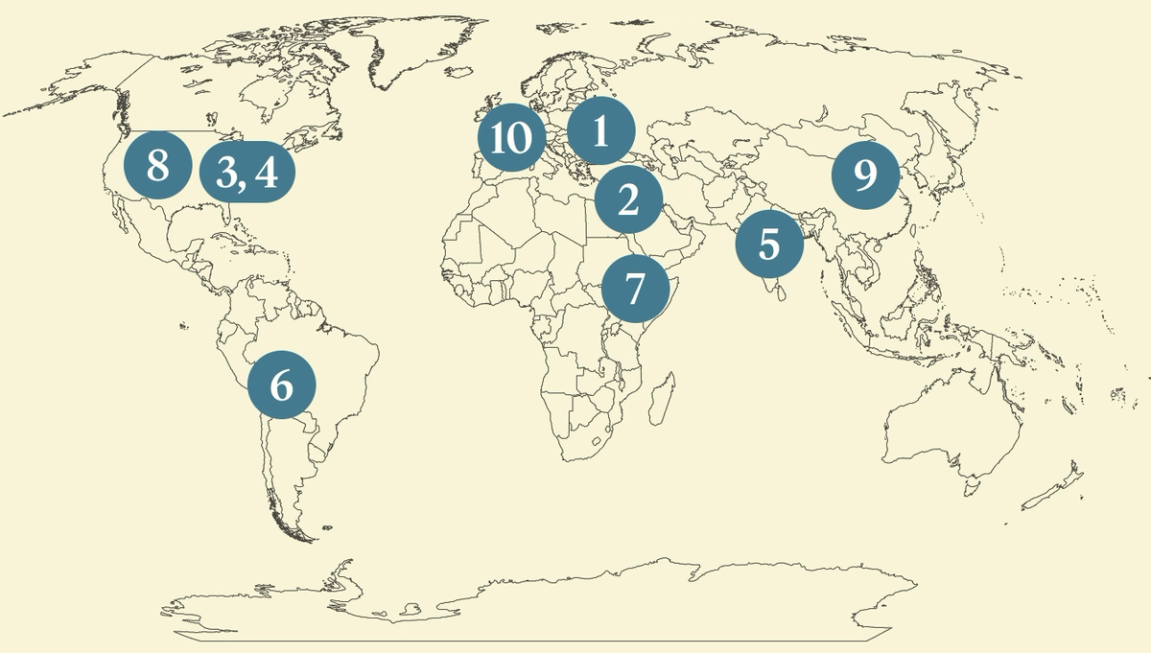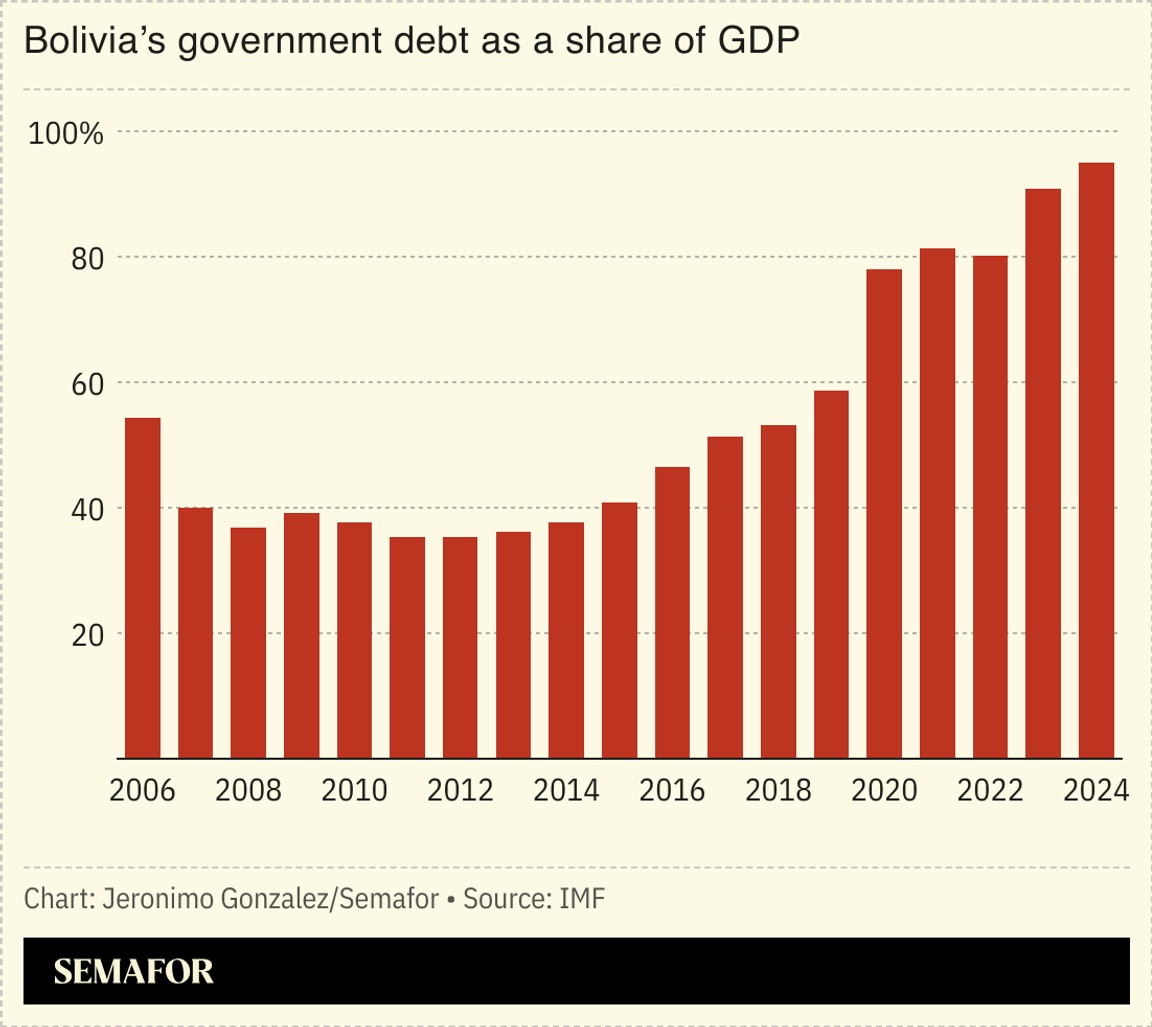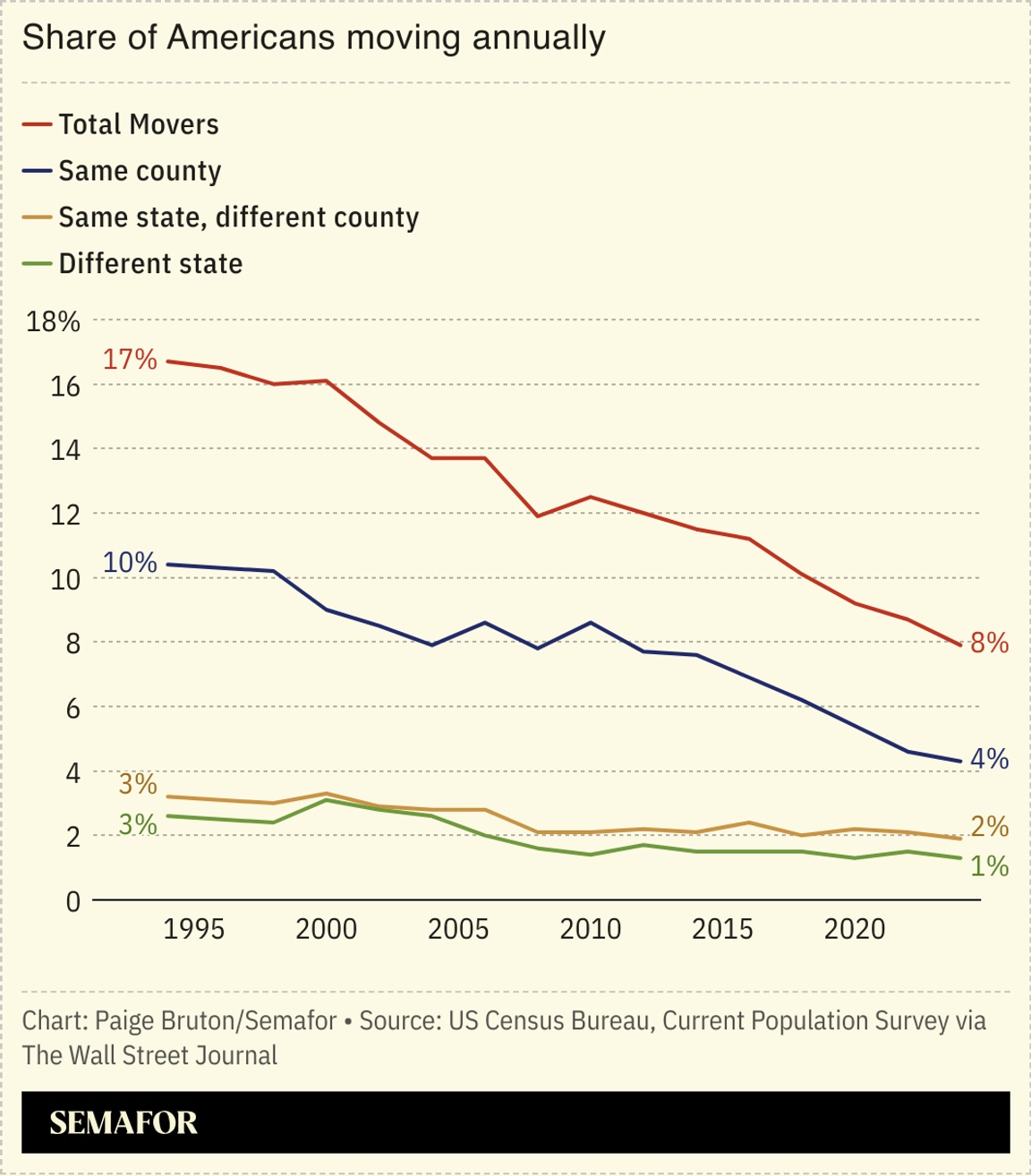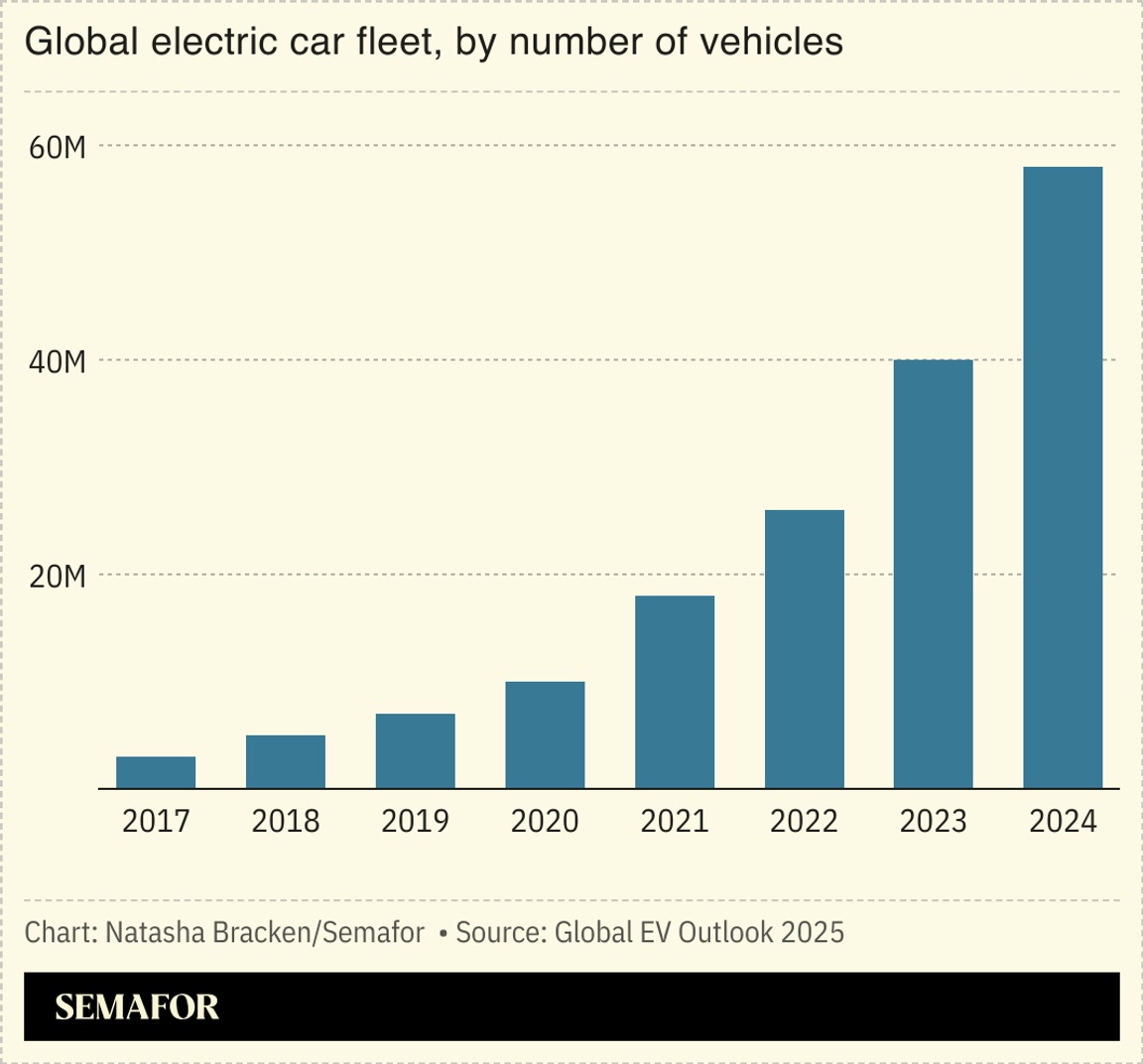| | Trump pressures Ukraine, Israel presses on Gaza resettlement, and Africa’s campaign for a fairer glo͏ ͏ ͏ ͏ ͏ ͏ |
| |  | Flagship |  |
| |
|
The World Today |  - Trump pressures Ukraine
- Israel pushes on Gaza
- Blackwater boss’ return
- Trade frustration with US
- Chinese diplomat to India
- Bolivia’s left hammered
- Africa’s fair map campaign
- US internal migration slows
- EVs set new records
- France’s accessible beaches
 The London Review of Substacks and a recommendation for a book with ‘a narrator to fall in love with.’ |
|
 Andrew Harnik/Getty Images Andrew Harnik/Getty ImagesUS President Donald Trump piled pressure on Kyiv just hours before a critical meeting with Ukraine’s president and several European leaders over Russia’s invasion. Though Trump appeared to make concessions in talks with Russian President Vladimir Putin last week, European officials viewed his openness to a US security guarantee as a positive and hoped to make further headway during talks in Washington today. Ahead of the meeting, however, Trump posted on social media that Ukraine should surrender Crimea and forego any hopes of joining NATO. Ukraine’s — and Europe’s — challenge “is to get Trump off the path that Putin has laid out for him,” the Financial Times’ chief foreign affairs commentator wrote, warning that they were entering “the lion’s den.” |
|
Israel steps up Gaza push |
 Amir Levy/Getty Images Amir Levy/Getty ImagesIsrael stepped up efforts to relocate Gazans while intensifying its military push on the territory. Israeli officials have spoken to counterparts in several countries and territories, including Libya, South Sudan, Somaliland, and Syria about hosting Palestinians who agree to leave Gaza, while both Israel and the US have pressed Egypt to take people from the enclave, according to The Wall Street Journal. Rights groups have questioned, however, whether such resettlement would actually be voluntary, and the UN has suggested it could amount to ethnic cleansing. The reports came as Israel hammered Gaza City, forcing huge numbers of Palestinians to flee: The country has said its forces aim to take over the city in order to eradicate Hamas. |
|
 Alex Wong/Getty Images Alex Wong/Getty ImagesErik Prince, the former head of the notorious US mercenary firm Blackwater, is once again in Washington’s good graces after taking up overseas security jobs the White House doesn’t want to pay for. Blackwater’s reputation was tarnished following violent excesses during former President George W. Bush’s war on terror. However Prince’s closeness to senior Washington officials has brought him back into the fold: He announced last week that he had reached a deal with Haiti to provide security forces for a decade to address the Caribbean country’s struggle with gangs that have taken control of the capital city. He has also reached an agreement with Ecuador as it vies to quell a surge in homicides. |
|
 Esa Alexander/Reuters Esa Alexander/ReutersUS trading partners grew increasingly restless over the slow pace of finalizing tariff-relief deals with Washington. A mammoth agreement with the European Union — the outlines of which were announced last month — is being held up by American demands that Brussels water down its laws regulating Big Tech, the Financial Times reported, while officials in the EU, as well as Japan, South Korea, and the UK are still waiting for the White House to follow through on promises for reductions on existing levies, Bloomberg said. For the US, meanwhile, the deals have not been as successful as announced, an economics writer argued in The Atlantic: Much-ballyhooed investment promises look unlikely to fully materialize, while other concessions “don’t add up to much.” |
|
China’s top diplomat in India |
 Madoka Ikegami/Pool/Getty Images Madoka Ikegami/Pool/Getty ImagesChina’s foreign minister was due to arrive in New Delhi for talks aimed at rebuilding relations five years after fierce border clashes — efforts which have also been given a fillip by trade pressure from Washington. Wang Yi’s trip will include a meeting with Indian Prime Minister Narendra Modi, who is due to visit China this month: The two countries’ soldiers clashed along their disputed border in 2020, and each still maintains upwards of 50,000 troops along the frontier. Their relations have been bolstered by the White House, which next week is set to impose additional tariffs on India — much to New Delhi’s frustration — for its purchase of Russian oil, spurring it to pursue improved ties with Beijing. |
|
Bolivia’s dominant left is routed |
 A centrist and a center-right candidate made it through the first round of Bolivia’s presidential election, which was marked by voters’ rejection of the ruling left-wing party. The Movement Toward Socialism has ruled Bolivia for almost two decades since Evo Morales became president in 2006: It initially benefitted from a commodities boom that fed a surge in government spending, but as energy prices fell and state coffers dried up, the government piled up debt in a failed bid to revive economic growth. The two successful candidates, who will face each other in an October runoff, have both vowed to slash spending. “People have generally stopped believing in socialism,” a former Morales voter told The Wall Street Journal. |
|
African Union joins map push |
 Andy Soloman/UCG/Universal Images Group via Getty Images. Andy Soloman/UCG/Universal Images Group via Getty Images.The African Union joined a campaign to push international institutions to adopt a map that more accurately reflects the continent’s size. The Mercator Map — still the most widely-used projection despite being charted in 1599 — distorts countries that lie close to the Equator, as much of Africa does, making them look smaller. For instance the projection makes Africa and Greenland appear about roughly the same size, when in reality the former is about 15 times larger, thus promoting an idea that Africa is “marginal,” an AU official said. “It might seem to be just a map, but in reality, it is not,” the AU Commission’s deputy chairperson told Reuters. |
|
 Americans are moving between cities at historically low rates, with drastic consequences for the country’s economy and politics. Experts worry the lack of internal migration may put the country’s historic dynamism at risk: More people are keeping their homes, and their jobs, resulting in fewer opportunities for younger ones. Some smaller cities are trying to address the issue by offering bonuses to lure remote workers, hoping to help reverse a longrunning brain drain. The US was characterized by moves toward opportunity, but a recent book by the historian Yoni Appelbaum argues that “a country that once made it possible for its people to move freely and chase a better life has steadily strangled that mobility over time.” |
|
Records showcase EV prowess |
 Two new electric-vehicle records showcased the growing capacity of EVs. A Polestar 3 SUV recently lasted 581.3 miles on a single charge, setting a Guinness World Record: The EV was helmed by “professional efficiency” drivers who stayed on mostly flat roads. And separately, an XPeng P7 sedan covered 2,461 miles in a single 24-hour period of near-relentless driving and charging, barely beating a prior record set by another Chinese automaker, Xiaomi. EV manufacturers have spent years combatting “range anxiety,” but sales data indicates buyers are becoming less worried about the issue: 10.7 million EVs were sold worldwide in the first seven months of the year, a 27% increase on the same period in 2024. |
|
France expands accessible beaches |
 Eric Gaillard/File Photo/Reuters Eric Gaillard/File Photo/ReutersAn increasing number of beaches in France are making themselves accessible to people with mobility issues in order to ensure more holidaymakers can enjoy the country’s summer vacation period. Some 150 beaches nationwide have won a |
|
|